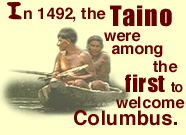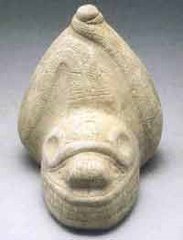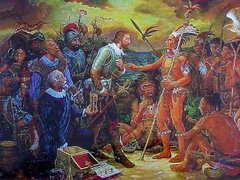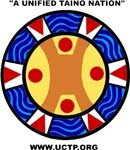Did You Know: Taíno society was organized in two sectors - nitaíno (community
leaders) and naboria (general community
members). Community life was administrated
by chiefs and sub-chiefs called kasike
(cacique), who in turn were supported and often advised by other community and spiritual
leaders called behike and buhiti among other names. The traditional
territories (called cacicazgos
by the Spaniards) controlled by kasike were actually confederations of iukaieke (yucayeque) communities with
populations that ranged from several hundred to thousands of people. As Taíno
society developed over time, powerful kasike (caciques) united these communities
into political states that were ultimately guided by a grand or paramount chief.
In 1492, Kiskeia (Hispaniola) was organized under five confederations. Boriken
(Puerto Rico) was organized under 20, with the Guainia (Guaynia) territory
being the largest and most politically powerful. - UCTP Taíno News © 2013
An extension of the United Confederation of Taino People’s premier online news service the "Voice of the Taino People Online", this educational initiative is dedicated to increasing the visibility of Indigenous Peoples from throughout the Caribbean region and the Diaspora in the Spirit of Our Ancestors. Copyright for the entries included in "The UCTP Did You Know Files" is retained by the United Confederation of Taino People. Copyright © 2007-2023, All Rights Reserved.
United Confederation of Taino People
Subscribe via email
Did You Know:

Links to the Taino World
- The United Confederation of People
- Taino News and Information Group
- The Voice of the Taino People Online
- UCTP TAINO MERCHANDISE - BUY NOW!
- Consejo General de Tainos Borincanos
- Caney Quinto Mundo
- Cacibajagua Taino Cultural Society
- IPCGC
- Presencia Taina TV: Taino Videos
- Taino Nation on My Space
- Taino TV Network
- International Indigenous Portal

The Voice of the Taino People Online

La Confederacion Unida del Pueblo Taino
About Me

- UCTP TAINO NEWS
- A Communications Service of the United Confederation of Taino People (UCTP)
Agueybana


